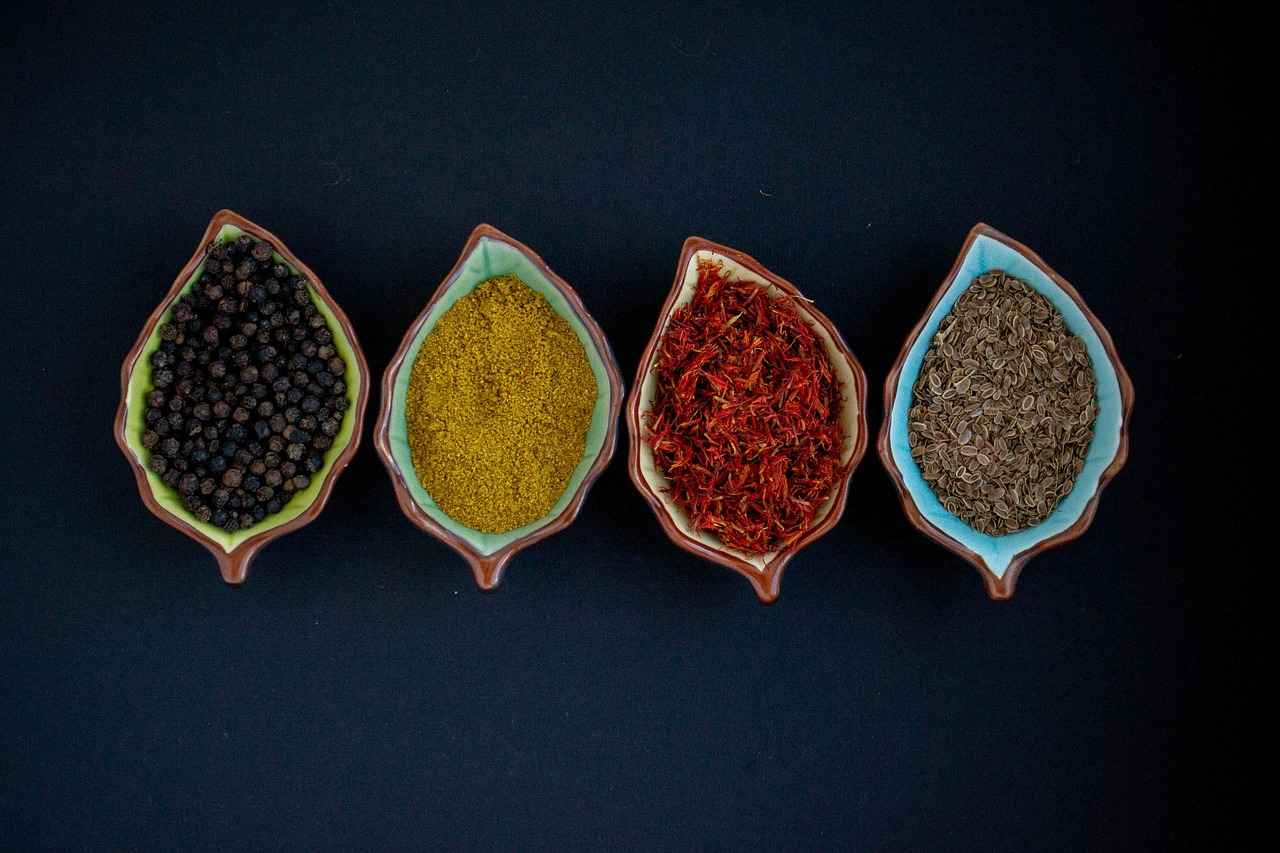This article delves into the remarkable anti-inflammatory properties of turmeric root, exploring its health benefits, uses, and scientific backing to provide a comprehensive understanding of this powerful spice.
What is Turmeric Root?
Turmeric root, a vibrant yellow spice derived from the Curcuma longa plant, has been utilized for centuries in traditional medicine and cooking. Known for its distinct flavor, turmeric is celebrated not only for its culinary uses but also for its numerous health benefits.
The Science Behind Curcumin
Curcumin, the active compound in turmeric, is primarily responsible for its anti-inflammatory effects. Extensive research highlights its ability to inhibit inflammatory pathways and promote overall wellness, making it a focal point of scientific study.
Curcumin’s Mechanism of Action
Understanding how curcumin interacts with various molecular targets helps explain its anti-inflammatory properties. It has the potential to modulate immune responses and reduce chronic inflammation in the body.
- Inhibition of Inflammatory Cytokines: Curcumin has been shown to inhibit the production of pro-inflammatory cytokines, which play a critical role in inflammation.
- Impact on Oxidative Stress: By reducing oxidative stress, curcumin protects cells from damage, enhancing its anti-inflammatory benefits.
Health Benefits of Turmeric Root
Beyond its anti-inflammatory properties, turmeric root offers a range of health benefits, including:
- Antioxidant effects
- Improved digestion
- Potential protective effects against various diseases
How to Incorporate Turmeric into Your Diet
Incorporating turmeric into your daily meals can be simple and enjoyable. Here are some practical tips:
- Cooking with Turmeric: Easily add turmeric to dishes like curries and smoothies for enhanced flavor and health benefits.
- Turmeric Supplements: For concentrated doses, turmeric supplements are available in various forms, such as capsules and powders.
Potential Side Effects of Turmeric
While turmeric is generally safe, it’s essential to be aware of potential side effects, especially when consumed in large amounts:
- Gastrointestinal Issues: Some may experience discomfort, such as nausea or diarrhea, when consuming excess turmeric.
- Interactions with Medications: Turmeric may interact with certain medications, including blood thinners, making it crucial to consult healthcare professionals.
Conclusion: The Future of Turmeric Research
As research continues to unveil the potential of turmeric and curcumin, the spice’s role in health and wellness is likely to expand, promising new applications in the prevention and management of inflammatory conditions.

What is Turmeric Root?
Turmeric root, scientifically known as Curcuma longa, is a vibrant yellow spice that has captured the attention of both culinary enthusiasts and health practitioners for centuries. This spice, which is derived from the rhizome of the turmeric plant, is celebrated not only for its distinct flavor but also for its remarkable health benefits. Historically, turmeric has been a staple in traditional medicine, particularly in Ayurvedic and Chinese practices, where it has been utilized to treat a variety of ailments.
The bright yellow pigment of turmeric is due to its active compound, curcumin, which is renowned for its potent anti-inflammatory and antioxidant properties. These characteristics have made turmeric a focal point of scientific research, as studies continue to explore its potential in managing chronic diseases, including arthritis, heart disease, and even certain cancers.
In the kitchen, turmeric is versatile and can be incorporated into a wide range of dishes. From curries to soups, and even smoothies, its earthy flavor enhances culinary creations while promoting health. Additionally, turmeric can be consumed in various forms, including fresh, powdered, or as extracts in supplements, making it accessible for everyone.
Despite its numerous benefits, it is important to consume turmeric in moderation. While it is generally safe for most individuals, excessive intake can lead to gastrointestinal discomfort or interact with certain medications. Therefore, consulting with a healthcare provider before significantly increasing turmeric consumption is advisable.
In conclusion, turmeric root stands out as a powerful spice with a rich history and a promising future in health and wellness. Its unique properties not only enhance flavor but also offer a multitude of health benefits, making it a valuable addition to any diet.

The Science Behind Curcumin
Curcumin, the principal active compound found in turmeric, has garnered significant attention in the scientific community due to its impressive anti-inflammatory properties. This compound plays a crucial role in various biological processes, and recent research has illuminated its mechanisms of action and potential health benefits.
One of the primary ways curcumin exerts its effects is by inhibiting inflammatory pathways. This means it can effectively block the activity of certain molecules that promote inflammation, thus reducing the overall inflammatory response in the body. Various studies have indicated that curcumin can suppress the activity of nuclear factor kappa B (NF-kB), a protein complex that regulates the expression of genes involved in inflammation.
Additionally, curcumin has been shown to modulate the immune system, enhancing the body’s ability to respond to inflammatory stimuli while simultaneously reducing chronic inflammation. This dual action makes it a promising candidate for managing conditions such as arthritis, cardiovascular diseases, and even certain metabolic disorders.
Furthermore, curcumin also plays a role in combating oxidative stress. By neutralizing free radicals, curcumin helps protect cells from damage, which can further exacerbate inflammatory conditions. This antioxidant property is vital for maintaining overall health and preventing the onset of chronic diseases.
In summary, the science behind curcumin reveals a complex interplay between its ability to inhibit inflammatory pathways and its role in promoting wellness. As research continues to unfold, curcumin’s potential applications in both preventing and managing various health conditions remain an exciting area of study.
Curcumin’s Mechanism of Action
is a fascinating area of study that reveals the intricate ways this natural compound interacts with the body to exert its beneficial effects. Curcumin is the primary active ingredient found in turmeric root, and its ability to combat inflammation is well-documented in scientific literature.
Understanding how curcumin interacts with various molecular targets is crucial for explaining its anti-inflammatory properties. This compound has been shown to modulate the immune response effectively, which can lead to a significant reduction in chronic inflammation throughout the body. By influencing key signaling pathways, curcumin acts as a natural regulator of inflammatory processes.
- Inhibition of Inflammatory Cytokines: Curcumin has been found to inhibit the production of pro-inflammatory cytokines, which are critical mediators in the inflammatory response. This inhibition helps to alleviate symptoms associated with various inflammatory conditions.
- Impact on Oxidative Stress: Curcumin also combats oxidative stress by neutralizing free radicals. This protective effect on cells enhances its anti-inflammatory benefits, contributing to overall wellness.
- Modulation of NF-kB: One of the key mechanisms through which curcumin exerts its effects is by inhibiting the nuclear factor kappa-light-chain-enhancer of activated B cells (NF-kB), a protein complex that plays a pivotal role in regulating inflammation and immune responses.
Research indicates that curcumin’s multifaceted approach to tackling inflammation not only aids in managing chronic conditions but also promotes better health overall. Its ability to interact with various molecular targets underscores its potential as a therapeutic agent in both preventative and treatment strategies.
In conclusion, the understanding of offers valuable insights into its role as a natural anti-inflammatory compound. Continued research in this area promises to unlock further health benefits and applications, solidifying curcumin’s place in both traditional and modern medicine.
Inhibition of Inflammatory Cytokines
Curcumin, the active compound found in turmeric root, has garnered significant attention due to its remarkable ability to inhibit the production of pro-inflammatory cytokines. These cytokines are signaling molecules that play a pivotal role in the inflammatory response, often contributing to various chronic diseases and inflammatory conditions. By modulating these cytokines, curcumin showcases its potential as a natural therapeutic agent.
Research indicates that curcumin can effectively target multiple inflammatory pathways. For instance, studies have demonstrated its capacity to suppress the activation of nuclear factor-kappa B (NF-κB), a key regulator of inflammation. This suppression leads to a decrease in the production of pro-inflammatory cytokines such as tumor necrosis factor-alpha (TNF-α) and interleukin-6 (IL-6). By reducing the levels of these cytokines, curcumin helps to alleviate inflammation and improve overall health.
Moreover, curcumin’s anti-inflammatory properties extend beyond just cytokine inhibition. It also enhances the body’s antioxidant defenses, which play a crucial role in combating oxidative stress—a condition that often exacerbates inflammation. By reducing oxidative stress, curcumin not only protects cells from damage but also supports the body’s ability to manage inflammation more effectively.
Incorporating curcumin into your daily routine can be beneficial for those suffering from inflammatory conditions such as arthritis, cardiovascular diseases, and even certain autoimmune disorders. Whether through culinary uses in dishes or as a dietary supplement, the anti-inflammatory effects of curcumin can significantly contribute to a healthier lifestyle.
In conclusion, the inhibition of inflammatory cytokines by curcumin represents a promising area of research with potential implications for managing chronic inflammatory conditions. As more studies emerge, the understanding of how curcumin can be effectively utilized in therapeutic contexts will continue to evolve, paving the way for new health strategies.
Impact on Oxidative Stress
Curcumin, the active component of turmeric root, has gained significant attention for its potential in combating oxidative stress. Oxidative stress occurs when there is an imbalance between free radicals and antioxidants in the body, leading to cellular damage. This condition is linked to various chronic diseases, including cancer, heart disease, and neurodegenerative disorders.
By effectively reducing oxidative stress, curcumin plays a crucial role in protecting cells from damage. This protective effect is attributed to curcumin’s ability to scavenge free radicals and enhance the activity of antioxidant enzymes. As a result, curcumin not only helps in mitigating cellular damage but also supports the body’s overall health.
Moreover, curcumin’s antioxidant properties complement its anti-inflammatory benefits. When oxidative stress is reduced, the inflammatory response in the body is also moderated. This synergy between antioxidant and anti-inflammatory effects makes curcumin a powerful ally in managing chronic diseases. Research indicates that individuals suffering from conditions such as arthritis, diabetes, and cardiovascular diseases may experience significant improvements in their symptoms when curcumin is included in their treatment regimen.
Incorporating curcumin-rich turmeric into your diet can be an effective strategy for enhancing your health. Whether through cooking, teas, or supplements, the potential benefits are vast. For those looking to improve their overall well-being, curcumin offers a promising avenue for reducing oxidative stress and promoting a healthier lifestyle.
In conclusion, the impact of curcumin on oxidative stress highlights its importance not only as a spice but as a functional food with potential health benefits. Continued research is essential to fully understand its mechanisms and to explore its applications in chronic disease management.
Health Benefits of Turmeric Root
Turmeric root, known for its vibrant yellow color, is not just a staple in culinary traditions but also a powerhouse of health benefits. Beyond its well-documented anti-inflammatory properties, turmeric root has a multitude of advantages that can significantly enhance overall well-being.
- Antioxidant Effects: Turmeric is rich in curcumin, a compound that exhibits potent antioxidant properties. This helps neutralize free radicals in the body, reducing oxidative stress and preventing cellular damage.
- Improved Digestion: Turmeric can stimulate bile production, which aids in the digestion of fats. It may also help alleviate symptoms of bloating and gas, promoting a healthier digestive tract.
- Potential Disease Protection: Research suggests that turmeric may offer protective effects against various diseases, including heart disease and certain types of cancer. Its anti-inflammatory and antioxidant properties contribute to this protective role.
- Joint Health: Regular consumption of turmeric can help manage joint pain and stiffness, making it beneficial for individuals with arthritis or other inflammatory joint conditions.
- Skin Health: Turmeric is often used in skincare for its anti-inflammatory and antibacterial properties. It may help improve skin conditions such as acne and eczema.
Incorporating turmeric into your daily routine can be both simple and delicious. Whether you add it to smoothies, soups, or curries, the spice not only enhances flavor but also enriches your meals with its numerous health benefits.
As ongoing research continues to unveil the full spectrum of turmeric’s potential, it remains a promising natural remedy for promoting health and preventing diseases. By embracing this golden spice, individuals can take proactive steps towards a healthier lifestyle.

How to Incorporate Turmeric into Your Diet
Incorporating turmeric into your daily meals can be both simple and enjoyable, allowing you to harness its numerous health benefits effortlessly. This vibrant yellow spice, known for its anti-inflammatory properties, can be added to a variety of dishes. Here are some practical tips to effectively include turmeric in your diet:
- Start Your Day Right: Add a teaspoon of turmeric powder to your morning smoothie or oatmeal. This not only boosts the nutritional profile but also adds a warm flavor.
- Spice Up Your Cooking: Turmeric can be easily integrated into soups, stews, and curries. Its earthy flavor pairs well with other spices, enhancing the overall taste of your meals.
- Golden Milk: Consider making a soothing golden milk by mixing turmeric with warm milk (or a plant-based alternative), a pinch of black pepper, and honey. This drink is not only comforting but also packed with health benefits.
- Flavorful Marinades: Use turmeric in marinades for meats, tofu, or vegetables. Combine it with yogurt, garlic, and lemon juice for a zesty flavor that tenderizes proteins.
- Turmeric Tea: Brew a cup of turmeric tea by steeping fresh turmeric root or powder in hot water. Add lemon and honey for a refreshing beverage that soothes the throat.
- Baking with Turmeric: For the adventurous, incorporate turmeric into baked goods such as muffins or bread. It can add an interesting flavor profile while boosting the health benefits of your treats.
Conclusion: Adding turmeric to your diet doesn’t have to be complicated. By using these simple tips, you can enjoy this powerful spice in various forms while reaping its health benefits. Remember to start with small amounts to see how your body responds, and enjoy the journey of enhancing your meals with turmeric!
Cooking with Turmeric
has become increasingly popular due to its remarkable flavor and numerous health benefits. This vibrant yellow spice, derived from the Curcuma longa plant, is not just a staple in traditional cuisines but also a versatile ingredient that can enhance a wide range of dishes.
One of the simplest ways to incorporate turmeric into your meals is by adding it to curries. Its warm, earthy flavor complements a variety of vegetables and proteins, making it a perfect addition to vegetarian and meat-based dishes alike. For instance, a chickpea curry with turmeric not only provides a delightful taste but also packs a nutritional punch.
In addition to savory dishes, turmeric can also be used in smoothies. A teaspoon of turmeric powder can transform a regular fruit smoothie into a health-boosting drink. Combine it with ingredients like banana, spinach, and coconut milk for a refreshing beverage that supports your immune system.
Another creative way to use turmeric is by incorporating it into rice dishes. A pinch of turmeric can turn plain rice into a vibrant, golden side dish that is as appealing to the eye as it is to the palate. This method not only enhances the flavor but also adds a variety of health benefits.
For those who enjoy baking, turmeric can even find its way into cookies and muffins. Adding a small amount to your favorite recipes can introduce a unique flavor while boosting the antioxidant properties of your baked goods.
In summary, the versatility of turmeric allows it to be easily integrated into many culinary creations, from savory dishes to sweet treats. Its ability to enhance flavor while offering numerous health benefits makes it a valuable addition to any kitchen.
Turmeric Supplements
have gained immense popularity as a convenient way to harness the health benefits of turmeric root, particularly its active compound, curcumin. For individuals seeking concentrated doses of this potent spice, supplements are available in various forms, including capsules, powders, and extracts.
One of the primary advantages of turmeric supplements is their convenience. Unlike incorporating turmeric into meals, which may require careful planning and preparation, supplements offer an easy solution for those with busy lifestyles. This means that individuals can enjoy the health benefits of turmeric without significantly altering their diets.
Moreover, turmeric supplements often contain higher concentrations of curcumin compared to the spice used in cooking. This can enhance the potential health benefits, particularly for those aiming to combat chronic inflammation or improve joint health. Many products are designed to improve the bioavailability of curcumin, ensuring that the body can absorb and utilize it effectively.
When selecting a turmeric supplement, it is essential to consider several factors:
- Quality: Look for reputable brands that provide third-party testing to ensure the purity and potency of their products.
- Form: Capsules are easy to take, while powders can be mixed into smoothies or beverages for those who prefer a more versatile option.
- Dosage: Follow the recommended dosage on the product label and consult with a healthcare professional if uncertain.
In addition to their anti-inflammatory properties, turmeric supplements may also offer antioxidant benefits and support digestive health. Some studies suggest that curcumin can improve gut health and may even have protective effects against certain diseases.
As with any supplement, it is important to be aware of potential side effects. Some individuals may experience gastrointestinal discomfort or interactions with medications. Therefore, consulting with a healthcare provider before starting any new supplement regimen is advisable.
In conclusion, turmeric supplements provide a practical and effective way to incorporate the health benefits of turmeric root into daily life. By choosing high-quality products and following recommended guidelines, individuals can enjoy the myriad advantages of this remarkable spice.

Potential Side Effects of Turmeric
While turmeric is widely recognized for its numerous health benefits, it is crucial for consumers to understand that there are potential side effects associated with its use, particularly when it is consumed in large quantities or taken as a supplement. This awareness can help individuals make informed decisions about incorporating turmeric into their diets.
- Gastrointestinal Issues: Some people may experience gastrointestinal discomfort, including symptoms like nausea, diarrhea, or upset stomach, especially when turmeric is consumed in high doses. It is advisable to start with small amounts and gradually increase intake to assess tolerance.
- Allergic Reactions: Although rare, some individuals may exhibit allergic reactions to turmeric. Symptoms can include skin rashes, itching, or even difficulty breathing. Anyone experiencing these symptoms should seek medical attention immediately.
- Interactions with Medications: Turmeric can interact with various medications, particularly blood thinners, anti-diabetic drugs, and medications that affect stomach acid. It is essential for individuals on medication to consult healthcare professionals before adding turmeric supplements to their routine.
- Risk of Kidney Stones: Turmeric contains oxalates, which can contribute to the formation of kidney stones in susceptible individuals. Those with a history of kidney stones should be cautious about their turmeric intake.
- Hormonal Effects: Some studies suggest that turmeric may have estrogenic effects, which could potentially affect hormone-sensitive conditions. Individuals with such conditions should discuss turmeric use with their healthcare provider.
In conclusion, while turmeric is a powerful spice with various health benefits, it is vital to consume it responsibly. Understanding the potential side effects and consulting with healthcare professionals can help individuals enjoy the benefits of turmeric while minimizing risks.
Gastrointestinal Issues
are a common concern for individuals consuming turmeric, particularly when taken in large quantities. While turmeric is widely celebrated for its numerous health benefits, it is essential to recognize that moderation is crucial to avoid potential side effects.
Some individuals may experience gastrointestinal discomfort when consuming turmeric in excess. Symptoms can include:
- Nausea: A feeling of unease and discomfort in the stomach that may lead to vomiting.
- Diarrhea: Frequent, loose, or watery stools that can result from high doses of turmeric.
- Stomach cramps: Abdominal pain or discomfort that may accompany gastrointestinal upset.
These effects are often linked to the body’s reaction to curcumin, the active compound in turmeric. While curcumin is known for its anti-inflammatory and antioxidant properties, excessive intake can lead to irritation of the digestive tract.
To enjoy the benefits of turmeric without adverse effects, it’s advisable to:
- Consume turmeric in moderation: Stick to recommended dosages, especially when using supplements.
- Incorporate turmeric into meals: Adding turmeric to dishes like soups, curries, and smoothies can enhance flavor and health benefits without overconsuming.
- Consult with a healthcare professional: Before starting any new supplement regimen, especially if you have pre-existing health conditions or are taking medications.
In conclusion, while turmeric is a powerful spice with various health benefits, it is vital to approach its consumption with care. By being mindful of the quantity consumed, individuals can enjoy its advantages while minimizing the risk of gastrointestinal discomfort.
Interactions with Medications
Turmeric, particularly its active compound curcumin, has gained popularity for its numerous health benefits, especially its anti-inflammatory properties. However, it is essential to recognize that turmeric can interact with certain medications, potentially leading to adverse effects. Understanding these interactions is vital for anyone considering incorporating high doses of turmeric into their routine.
One of the most significant concerns is turmeric’s interaction with blood thinners. Curcumin may enhance the effects of anticoagulants such as warfarin, increasing the risk of bleeding. Therefore, individuals on blood-thinning medications should consult their healthcare provider before using turmeric supplements or consuming large amounts of turmeric in their diet.
Additionally, turmeric can affect the efficacy of anti-diabetic medications. Curcumin may lower blood sugar levels, which could lead to hypoglycemia when combined with diabetes medications. Patients managing diabetes should monitor their blood sugar levels closely and discuss any changes in their turmeric intake with their doctor.
Moreover, turmeric may interact with other medications, including those metabolized by the liver. Curcumin can inhibit certain enzymes responsible for drug metabolism, potentially altering the effectiveness of various medications. This highlights the importance of seeking professional advice before starting turmeric supplements, especially for individuals taking multiple medications.
In summary, while turmeric offers numerous health benefits, it is crucial to approach its use cautiously, particularly for those on medication. Consulting with a healthcare professional can ensure safe and effective incorporation of turmeric into one’s health regimen, minimizing the risk of harmful interactions.

Conclusion: The Future of Turmeric Research
As research progresses, the interest in turmeric and its active compound, curcumin, continues to grow. This vibrant yellow spice, derived from the Curcuma longa plant, has long been celebrated for its numerous health benefits, particularly its remarkable anti-inflammatory properties. The potential applications of turmeric in the prevention and management of various inflammatory conditions are becoming increasingly evident, paving the way for new health solutions.
Recent studies have shown that curcumin can effectively modulate inflammatory pathways in the body. This modulation is crucial, as chronic inflammation is linked to numerous health issues, including heart disease, arthritis, and even cancer. By targeting specific inflammatory cytokines, curcumin helps to alleviate symptoms and may improve the overall quality of life for individuals suffering from these conditions.
Furthermore, the antioxidant properties of curcumin contribute significantly to its health benefits. By combating oxidative stress, it protects cells from damage and supports the body’s natural defense mechanisms. This dual action of reducing inflammation and oxidative stress makes turmeric a powerful ally in maintaining health and wellness.
Incorporating turmeric into the diet is relatively simple and can be done through various means, such as adding it to meals or taking supplements. The versatility of turmeric allows it to be included in a wide range of dishes, from savory curries to health-boosting smoothies.
However, while turmeric is generally safe for most individuals, it is essential to consume it in moderation. Some may experience gastrointestinal discomfort if taken in excess, and there are potential interactions with certain medications that should be considered. Consulting with a healthcare professional before significantly increasing turmeric intake is advisable.
In conclusion, the future of turmeric research looks promising. As more studies emerge, the understanding of turmeric’s role in health and wellness will continue to expand, potentially leading to innovative approaches in the prevention and management of inflammatory conditions. The spice’s rich history combined with modern scientific validation positions it as a key player in the realm of natural health solutions.














